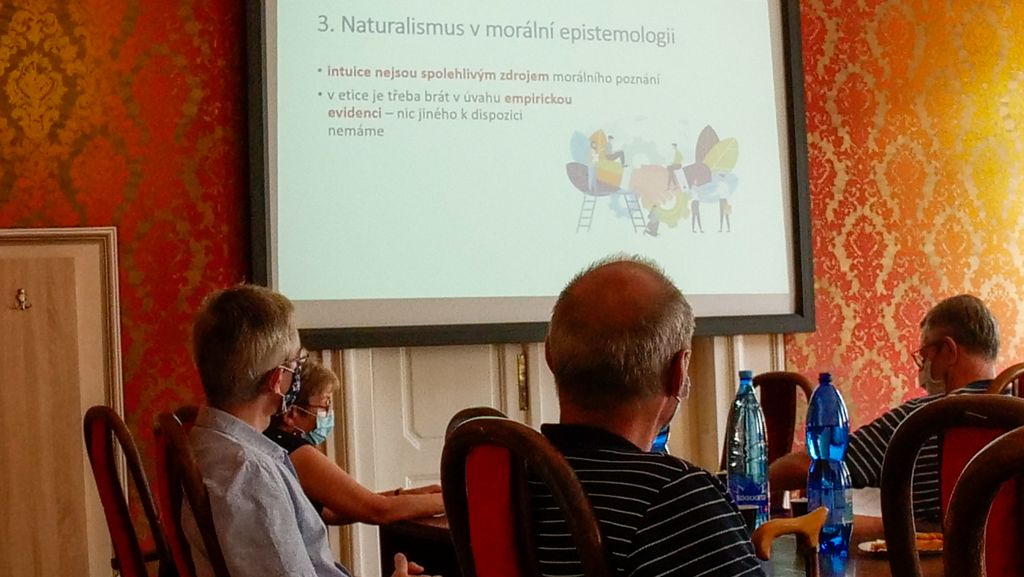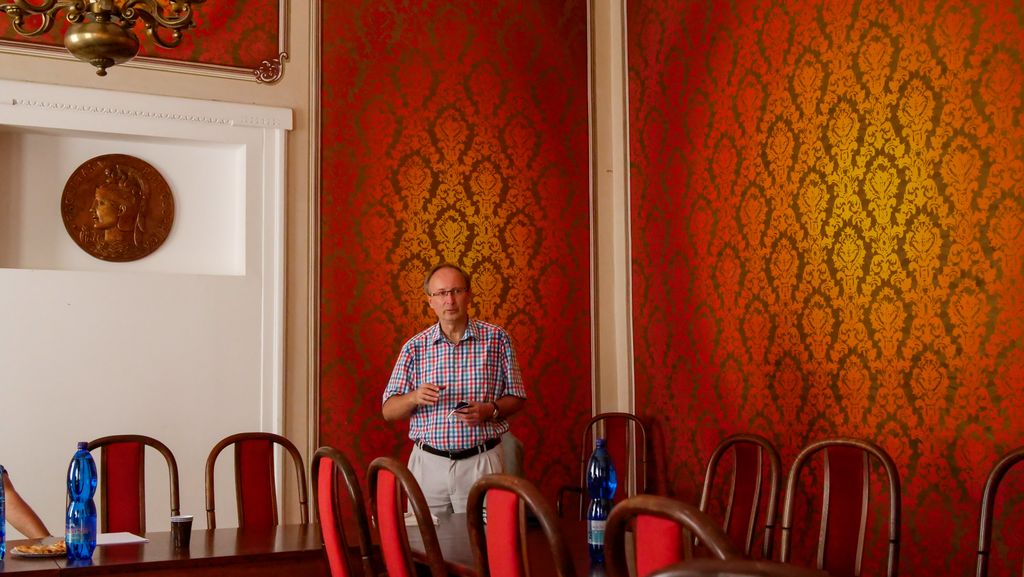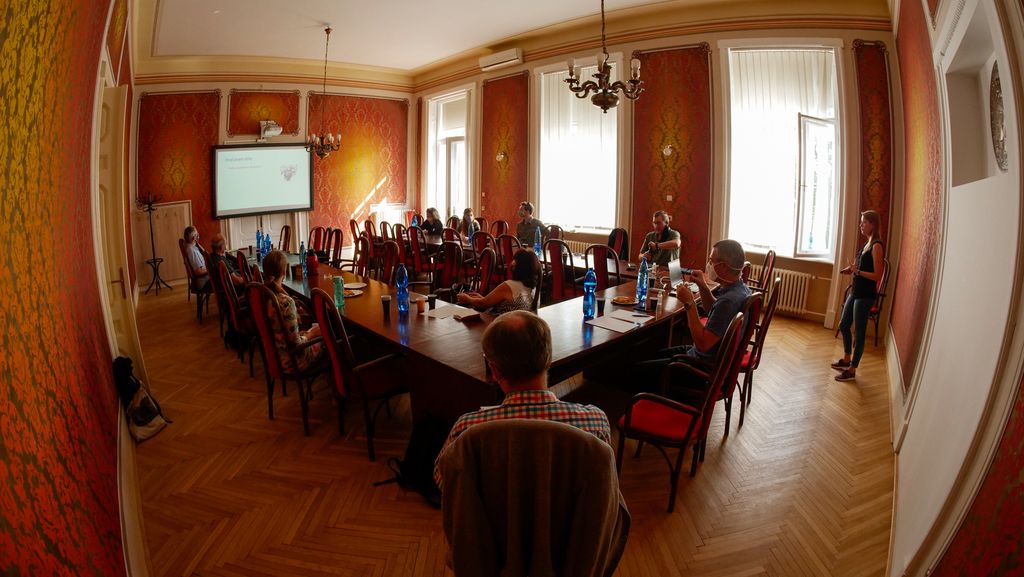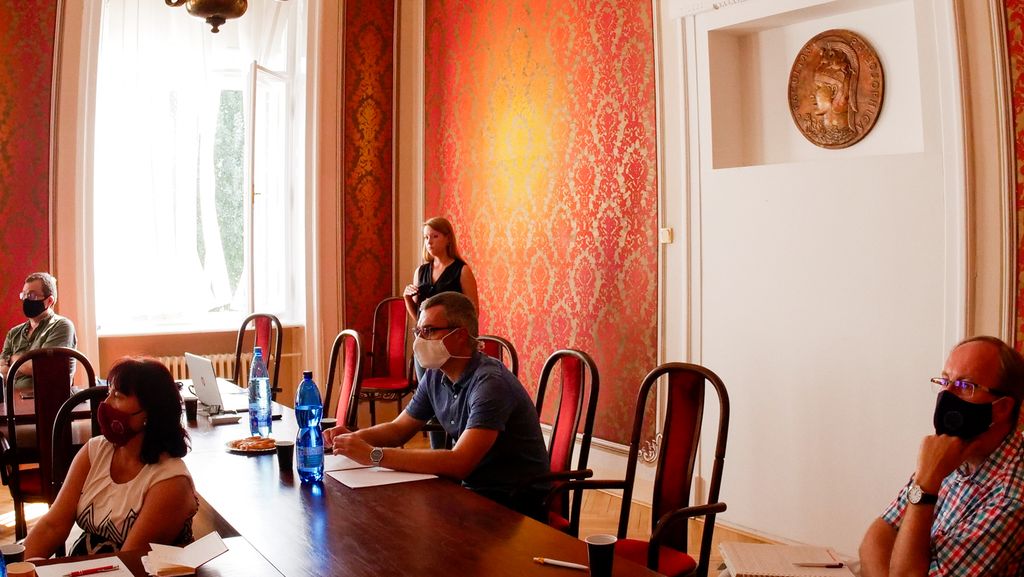The second in our series of workshops has taken the place on thursday the 17th of september 2020. Workshop was dedicated to the questions of naturalism in epistemology and ethics, in particular to the naturalistic positions on their intersections. Two foreign guests from Philosophical Faculty of Placaký University Olomouc have presented their ideas: Mgr. Filip Tvrdý, Ph.D. a Mgr. Petra Chudárková. Our own team was represented by Mgr. Martin Nuhíček, PhD.

In the first talk "Versions of naturalism in epistemology", Martin Nuhlíček has characterized naturalistic positions in contemporary epistemology relative to their traditional, non-naturalistic alternatives. He then distinguished radical eleminative naturalism and its moderate, cooperative version.
The focus of Filip Tvrdý's presentation "Naturalized epistemology of vices" was virtue epistemology and its counterpart, the epistemology of vices. According to Tvrdý, cognitive lazyness, that is, the inability or unwillingness to justify ones beliefs, and metacognitive incompetence, which amounts to one being to unable or unwilling to recognize ones errors, are two principal epistemic vices. Tvrdý also claimed that these vices can be naturalized with the help of various investigations in psychology and cognitive sciences.

Finally, in her presentation "Naturalism in moral epistemology", Petra Chudárková first considered some ways in which intuitionism and coherentism deals with the problem of moral justification and knowledge. She has found these solutions lacking and proposed that naturalized approach in ethics, being constrained by empirical evidence and scientific method, is a plausible alternative to solve given problems.
All three speakers have pointed out some ways in which some aspects of epistemology or ethics could be naturalized. However, the question of the ability of naturalistic approaches to make traditional epistemology and ethics eventually obsolete proved to be controversial, in the ensuing discussion.




